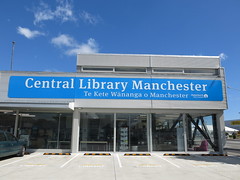Kia ora. This post is a brief introduction to Facebook, and a look at ways of making it work for you.
What is Facebook?
Facebook is a social network that started in 2004. Facebook has a large audience, and allows you to connect with friends, relatives, groups, and local organisations. According to Facebook’s research, Kiwis use it primarily to stay connected with friends and family, while nearly 8 in 10 also make product and brand discoveries via Facebook. As at April 2015, over 2.5 million Kiwis active on Facebook every month.
Find out more key trends about Kiwis on Facebook.
Getting started on Facebook
Read the terms of use and privacy policy before you sign up. Create an account. Go to settings and adjust the privacy of your profile if you don’t want everyone to see your information.

Using Facebook
Set up your network by searching for friends, relatives, events, and organisations you are interested in and “Liking” them. “Liking” other people’s pages and profiles means you might see their posts in your news feed.
Posting on Facebook
You can post a story by picking what type of story you want to share, and typing in any details you want to add. You can tag your friends or other organisations if you want them to be notified, and you can also tag people in photos you share.
Hashtags make topics and phrases into clickable links in your posts. This brings together posts on particular topics.
Find out how to post and share.

Posting photos and videos
You can share photos and videos on Facebook. A good way to do this is by making an album of images. Facebook automatically resizes and formats your photos when you add them to Facebook. To help make sure your photos appear in the highest possible quality, try these tips – Resize your photo to one of the following supported sizes: Regular photos (width in pixels): 720px, 960px, 2048px. Cover photos should be 851px by 315px.
News feed
Find out how the news feed works. It can sort by either Top Stories – worked out by Facebook metrics based on the number of comments and likes a post receives and what kind of story it is – or Most Recent.

The number of comments and likes a post receives and what kind of story it is (photo, video, status update) can make it more likely to appear in your News Feed. You can adjust your settings if you aren’t seeing the posts you want to.
Facebook groups
Facebook groups enable you to connect with groups like family, coworkers, or those who share a hobby or special interest. A Facebook group is a dedicated space where you can share updates, photos or documents and message other group members. You can also select one of three privacy options so the group can be private if you choose.
Find out more about Facebook groups.
Facebook events
Facebook events are a great way of building a community. If you make an event page, you can invite people to the event, and you can also share information on it.
Find out more about Creating and editing events.
For an example, see this Matariki event on Facebook.
Facebook pages
You can create a Facebook page for your group, organisation, or business. It gives you a space to share events and other information.
Find out how to create a page.
Facebook Insights
Facebook Insights allows you to find out more about users of your Facebook page. What demographic are they in? When are they online? What posts do they find most engaging? Use the data to help you. For example, if your users are mostly online between 6pm and 9pm, you can schedule posts for this time for maximum reach.
Local pages
Here are some Christchurch Facebook pages that illustrate how an active presence and community can work well. They take a different approach and yet are all effective:
- Christchurch Parents Centre
- CHCH EQ Photos
- Renew Brighton
- Phantom Billstickers
- The Chch Under 5s collective
Useful Facebook resources
- Facebook help centre
- Facebook help community – a place for you to ask and answer each other’s questions about Facebook.
- Facebook glossary of terms
- What’s new on Facebook
- Find information about Facebook at Christchurch City Libraries
- Find information about Facebook on our business and management eResources
- There are Facebook courses on Lynda.com










